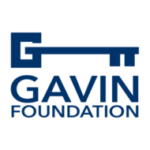Hamilton House
Drug Rehab Center in Boston, Massachusetts
Hamilton House, located in Boston, Massachusetts, is an addiction treatment facility that offers comprehensive and personalized addiction treatment services, including aftercare support, drug rehab, inpatient, residential, and detox programs, to help individuals suffering from alcoholism, opioid addiction, substance abuse, and drug addiction achieve lasting sobriety with the support of experienced professionals.
About This Boston, MA Facility
Hamilton House in Boston, MA is a public rehab facility dedicated to helping individuals overcome alcoholism, drug addiction, opioid addiction, and substance abuse. Set in a supportive environment, it focuses on comprehensive and personalized treatment.
The facility is committed to ensuring the safety and well-being of all clients and staff, proactively adapting to new developments. Its mission is to provide high-quality care and support for lasting recovery.
Accredited by CARF, SAMHSA, and holding a state license, Hamilton House offers various evidence-based treatment methods and levels of care. These include aftercare support, drug rehab, inpatient, residential, and detox programs.
- Personalized addiction treatment services
- Experienced professionals providing care and support
- Addiction counseling and relapse prevention
- Therapeutic activities and medical monitoring
Hamilton House specializes in treating alcoholism, opioid addiction, substance abuse, and drug addiction. It helps individuals build the necessary skills and knowledge to achieve lasting sobriety.
For someone struggling with opioid addiction, Hamilton House would provide a comprehensive treatment plan tailored to their specific needs. This may include medication-assisted therapy, individual and group counseling, and aftercare support to maintain long-term recovery.
Genders
Ages
Modality
Additional
Accreditations
State License
SAMHSA

CARF
The Commission on Accreditation of Rehabilitation Facilities (CARF) is a non-profit organization that specifically accredits rehab organizations. Founded in 1966, CARF's, mission is to help service providers like rehab facilities maintain high standards of care.
Conditions and Issues Treated
Substance abuse is the excessive use of any type of drug. This includes alcohol, medications and illegal drugs. Substance abuse is treated with a combination of physical and mental treatments. Hamilton House patients detox and follow up with therapies that target the underlying cause of the addiction.
Opioid addiction is one of Massachusetts‘s most prominent forms of addiction. Drugs, including heroin, oxycontin, and fentanyl, are the most common. To relieve pain, or ease other ailments, they are professionally prescribed, but they are often abused because they and the feelings they give are addictive.
Addiction is treated by detoxifying the body, so the medications’ chemicals are no longer impacting the individual. Hamilton House offers therapies to correct behavior and target the root of the problem are supplemented during and throughout treatment.
Levels of Care Offered
This center offers a variety of custom treatment tailored to individual recovery. Currently available are Aftercare Support, Drug Rehab, Inpatient, Residential, with additional therapies available as listed below.
When a patient checks into Hamilton House, inpatient care takes place. Patients undergo treatment that requires detoxification and counseling round the clock. While outpatient treatments are available, as the first phase in recovery, inpatient care is suggested. Intensive and thorough rehabilitation sets patients on the road to a drug-free life.
Residential treatment programs are those that offer housing and meals in addition to substance abuse treatment. Rehab facilities that offer residential treatment allow patients to focus solely on recovery, in an environment totally separate from their lives. Some rehab centers specialize in short-term residential treatment (a few days to a week or two), while others solely provide treatment on a long-term basis (several weeks to months). Some offer both, and tailor treatment to the patient’s individual requirements.
Aftercare support refers to the follow-up care provided after the initial rehab program. The quality of aftercare support plays an important role in preventing relapses and sustains recovery. Aftercare support at Hamilton House is personalized according to the needs of the patient in Massachusetts.
Hamilton House‘s Therapies & Programs
Customized individual therapy is counseling involving you and your counselor at Hamilton House. This builds a personal and trusting relationship so you can truly be yourself and express any emotions as you feel them. Individual therapy leads to greater peace and understanding about your triggers for addiction and coping strategies to prevent relapse.
Substance abuse does a number on an individual’s relationship with other people, particularly in marriage. Spousal relationships bear the brunt of alcohol and drug dependence. Therefore, it becomes critical to submit the relationship to couples therapy to prevent straining it further. Most programs only zero in on the individual with substance addiction without factoring in the importance of the other half’s emotional support.
However, some facilities, like Hamilton House in Boston, Massachusetts, offer couples therapy options to manage intimate partnerships amid the recovery process. Other couples-focused treatment plans can provide the patient and their partner tools to get things back to normal, support each other, and the patient’s sobriety.Group Therapy is a type of counseling that occurs between a bunch of strangers. These groups are suitable for patients who are not confined in a treatment facility, but group sessions are also common in inpatient rehab programs. Group therapy is led by a trained individual at Hamilton House in Boston, MA and consists of members from different stages of recovery.
The goal of group therapy sessions is to foster hope and a sense of belonging, share information, and learn coping mechanisms. It also helps to have people who can relate to what you’re going through. Good behaviors can also be contagious, and participants can learn from one another.
Unresolved trauma is often a key reason why many patients resorted to substance abuse. Trauma could be physical abuse, sexual abuse, war, natural disasters, divorce, accident, loss of a loved one, etc. If trauma is the primary cause of substance abuse, then both issues must be addressed.
Dialectical Behavior Therapy (DBT) is an improved version of Cognitive Behavioral Therapy (CBT) DBT is a treatment of choice for people being treated at Hamilton House whom are suffering from self-harming behaviors. Conditions such as obsessive-compulsive disorder and borderline personality disorder also benefit from DBT.
Cognitive Behavioral Therapy (CBT) is an approach and method in psychotherapy. Hamilton House asks people to investigate how their thoughts, including habitual, negative, and inaccurate ways of thinking affect behaviors. CBT is based on the idea that rigid, inflexible ways of thinking cause people to have a limited ability to cope with stress
Rational Emotional Behavior Therapy (REBT) is a method of specific counseling that replaces negative and self-limiting thoughts with positive and productive behaviors. Self-defeating thoughts and habits can limit your possible successes. Some examples of this are procrastination, unhealthy eating and angry outbursts. You may not be aware that some unhealthy behaviors and thoughts are sabotaging your potential accomplishments.
The 12-step program is a part of substance abuse treatment offered at Hamilton House. It was initially developed by the founders of Alcoholics anonymous. The program provides the benefit of cognitive restructuring. It refers to the process of change in the negative thoughts that leads to long-term benefits.
Some people refer to contingency management, or CM, as motivational incentives. This type of therapy is a reconditioning of the mind and responses of the body. The point of CM is to help the body understand the proper responses to behaviors should be, as well as the effects that come with both problematic and desired behaviors. The more positive choices a person makes, the more incentives they will receive, all managed with sobriety goals by Hamilton House in Boston, MA.
Payment Options Accepted
For specific insurance or payment methods please contact us.
Additional Details
Specifics, location, and helpful extra information.
Boston, Massachusetts 02122 Phone Number(617) 288-1584 Meta DetailsUpdated April 15, 2024
Staff Verified
What else do people call Hamilton House?
People have occasionally also searched for “Boston Hamilton House - Recovery Home in Massachusetts”
Patient Reviews
There are no reviews yet. Be the first one to write one.
Boston, Massachusetts Addiction Information
Massachusetts has one of the highest rates of drug abuse in the country. More than half a million Massachusetts residents abuse alcohol while more than 1.5 million use illegal drugs each year. This drug and alcohol usage is the cause of over 8% of all deaths in the state. In 2017, Massachusetts ranked in the top 10 of the states with the highest opioid overdose rates.
Boston has one of the highest rates of opioid abuse in the country. 1 in 10 residents struggles with substance abuse. Between 2013 and 2017, the number of opioid-related deaths in the area increased by 64%. There were over 1,100 overdose deaths in 2016. Detox is the first step in most treatment programs in Boston. This is where the person stops using drugs and allows their body to cleanse itself of toxins.
Treatment in Nearby Cities
- Peabody, MA (16.8 mi.)
- Feeding Hills, MA (84.3 mi.)
- Middleboro, MA (29.7 mi.)
- Orleans, MA (65.8 mi.)
- Westwood, MA (10.4 mi.)
Centers near Hamilton House
The facility name, logo and brand are the property and registered trademarks of Hamilton House, and are being used for identification and informational purposes only. Use of these names, logos and brands shall not imply endorsement. RehabNow.org is not affiliated with or sponsored by Hamilton House.








